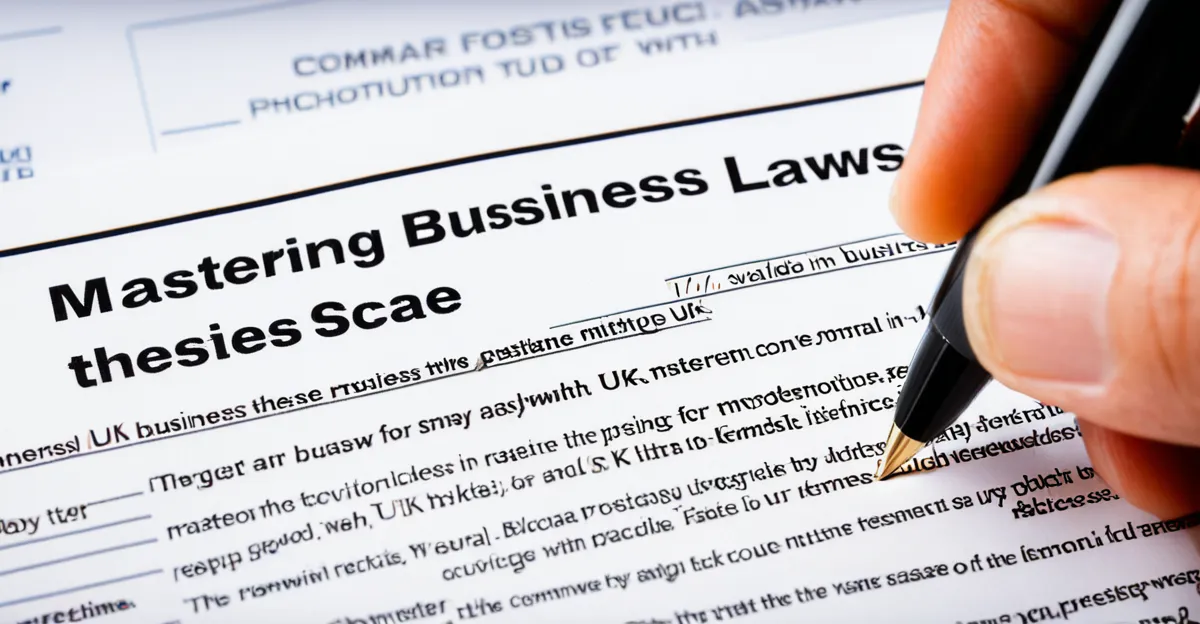Essential UK Business Laws Every Company Must Know
Understanding UK business laws is crucial for any company operating within the UK to ensure full legal compliance. Foundational laws cover several key areas: company formation, employment, tax, and contracts. Company formation laws dictate the legal procedures to establish a business, including registration with Companies House and compliance with the Companies Act 2006. Employment laws regulate workplace rights, contracts, and disputes, ensuring companies abide by rules such as minimum wage requirements and anti-discrimination policies. Tax regulations require accurate reporting and timely payment of corporation tax, VAT, and PAYE contributions, which are monitored closely by HM Revenue & Customs. Contract law governs agreements between businesses and clients or suppliers, emphasizing the need for clear, enforceable terms to avoid disputes.
In the UK business environment, multiple regulatory bodies oversee different compliance areas. These include the Financial Conduct Authority (FCA) for financial services, the Information Commissioner’s Office (ICO) for data protection compliance under GDPR, and the Health and Safety Executive (HSE) for workplace safety. Understanding the role of each regulator helps companies navigate their obligations effectively and avoid penalties.
Also to see : How can uk businesses legally navigate employment disputes? essential steps revealed
Regular legal reviews are essential for businesses to maintain continuous compliance with evolving UK regulations. Laws frequently update through new legislation and case law developments. Companies should conduct periodic audits of their contracts, employment practices, and tax affairs to identify gaps or non-compliance risks. Seeking legal advice during these reviews ensures companies adapt swiftly, protecting their reputation and operational stability. Keeping abreast of such changes demonstrates responsible governance and reduces the risk of costly legal challenges.
Frequent Legal Mistakes UK Businesses Encounter
In the UK business landscape, common legal pitfalls often stem from misunderstandings or oversights in crucial areas such as employment law, taxation, and contracts. Addressing these issues early can prevent costly consequences.
Have you seen this : Essential legal factors to consider in uk mergers and acquisitions
A frequent area for business law mistakes involves employment law. Many businesses falter by neglecting to draft clear, comprehensive contracts that outline worker rights, roles, and responsibilities. This oversight can lead to disputes regarding entitlement or unfair treatment claims, including discrimination. Ensuring compliance with employment regulations safeguards both employees and employers, reducing the risk of litigation.
Taxation is another domain rife with compliance issues. Errors like misreporting income, mishandling VAT obligations, or failing to claim rightful expenses can trigger financial penalties and tax investigations. Tax law’s complexity means that businesses must stay current with legislative changes to avoid unintended errors. Regular audits and consultations with tax professionals are prudent strategies.
Contractual agreements also present significant challenges. Oversights such as ambiguous terms, lack of dispute resolution mechanisms, or neglecting to review counterparties’ credentials can result in costly disputes or losses. Well-crafted contracts that clearly establish obligations and protections are essential to mitigate risks and secure business interests.
By understanding and proactively managing these common legal pitfalls, businesses can maintain regulatory compliance and protect their operations from unnecessary legal exposure.
How to Avoid Frequent Legal Missteps
Mastering compliance for smooth business operations
Avoiding legal mistakes is crucial for any organization aiming to maintain long-term success. Following a business law checklist helps ensure that a company stays on track with regulatory requirements and minimizes risks. One effective way to maintain legal compliance is through regular legal audits. These audits serve as proactive checkpoints, helping identify potential issues before they escalate into costly problems.
A vital tip for legal compliance is fostering a culture of proactive communication with legal advisors. Consistently engaging with professionals allows businesses to interpret complex laws accurately and adapt swiftly to any changes. This dialogue not only clarifies obligations but also enhances strategic decision-making.
Several tools and templates are available to streamline this process. For example, customizable compliance checklists, contract templates, and policy frameworks provide structured assistance that supports ongoing legal diligence. Implementing these resources ingrains best practices and reduces the likelihood of overlooking critical areas, thereby strengthening overall legal compliance.
In summary, consistently applying practical steps such as conducting legal audits, maintaining open advisor communication, and utilizing relevant tools creates a solid foundation for avoiding frequent legal missteps.


